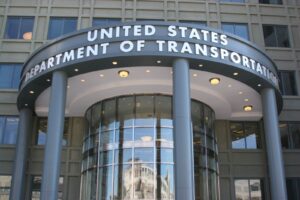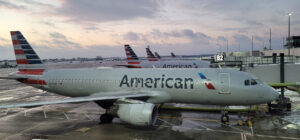Son's USA passport is expired, can we travel on AC to Canada tomorrow?
#31




Join Date: May 2005
Location: Dulles, VA
Programs: UA Life Gold, Marriott Life Titanium
Posts: 2,765
Sure, at a land crossing. No airline will let you board a plane without valid documentation that you can get in at the other end though. Opens them up to risk of fines.
Unfortunately I don't see you getting into Canada. Not without a valid current US passport and certainly not by air. At land crossings, you may get lucky and can certainly return but expect a likely delay.
Unfortunately I don't see you getting into Canada. Not without a valid current US passport and certainly not by air. At land crossings, you may get lucky and can certainly return but expect a likely delay.
#32




Join Date: Apr 2015
Location: YVR
Programs: UA Premier Platinum
Posts: 3,763
#33
FlyerTalk Evangelist


Join Date: Jun 2003
Location: YYC
Posts: 24,078
#34
Suspended
Join Date: Sep 2014
Programs: AC SE100K-1MM, NH, DL, AA, BA, Global Entry/Nexus, APEC..
Posts: 18,877
As I posted upthread, U.S. CBP, and security do their own thing. Airlines need photo ID for you to be able to board.
#35
FlyerTalk Evangelist

Join Date: Oct 2006
Location: SFO/SJC
Programs: UA Silver, Marriott Gold, Hilton Gold
Posts: 15,180
UA, especially on flights departing from ORD, sometimes instead used to ask folks to come up to the desk in the boarding area to check passports there, then mark the BP there to help speed up the boarding process. But at some point, maybe 2+ years ago, they stopped doing that and had to look at it as one was boarding - heard from more than one agent that they had gotten a memo from Canada saying it couldn't be checked at the desk like that prior to boarding any longer.
#36
Join Date: Dec 2005
Location: YYZ most of the time
Programs: AC SE100K MM, Princess Elite
Posts: 3,921
I can't believe this thread is still going on so long after the op (on the 10th) said travel was tomorrow (the 11th) and we haven't heard back as to what the resolution was.
OP..... where are you.....
OP..... where are you.....
#37




Join Date: Oct 2015
Posts: 772
CBSA here.
US citizen (regardless of age) can enter Canada with an expired passport at an officer's discretion. There is no legal requirement for US citizens to have a passport to enter Canada. This relates only to the interaction of a CBSA officer and a traveler: airlines, cruise ships, trains, etc, can impose their own rules.
In addition, the CBSA requires airlines to do the following:
"Passengers carried by transporters must be properly documented for travel to Canada. Transporters must not carry to Canada any person who does not hold the prescribed documents required for entry. In addition, transporters must not carry to Canada any person who is prescribed or who an officer directs not to be carried. Failure to meet these requirements can result in the assessment of an administration fee, or in exceptional circumstances, the seizure of a transporter's vehicle. Prescribed documents include:
passports and travel documents;
visas required by foreign nationals to enter Canada;
valid permanent resident cards;
travel documents issued to permanent residents abroad to facilitate their return to Canada;
single journey travel documents issued to refugees selected abroad for resettlement in Canada;
travel documents issued by Canada to persons on whom the Government of Canada has conferred protection as refugees or protected persons; and
electronic travel authorization (eTA).
Prescribed persons include:
any foreign national who is the subject of a declaration made under subsection 22.1(1) of the Act, unless they hold a temporary resident permit issued under section 24 of the Act; and
any foreign national who is not authorized under subsection 52(1) of the Act to return to Canada.
A transporter must require persons exempt from the legal requirement for a passport, visa or eTA, to present sufficient credible evidence to support all identity, citizenship and/or residency requirements.
The responsibility to ensure that a passenger is properly documented applies from the time the transporter boards the person at the final embarkation point before arrival in Canada until that person is presented for examination at a Canadian port of entry.
If there is doubt surrounding the authenticity of a travel document or whether the passenger is the rightful holder of a document, boarding should be refused and the person concerned should be referred to local control authorities."
Technically, airlines CAN choose to board US citizens (with other ID) who lack a valid passport, but it is up to the discretion of the airline. The airline can be fined 10k for boarding a passenger without proper immigration documents, so many airlines will impose stricter rules (e.g. not accept Nexus). Consider that an airline needs to train its staff on how to authenticate a passport and a visa for many different countries as well as what documents/visas are required; airlines are not training staff on specific Canadian law and whether a birth certificate and school ID from Nebraska will suffice.
So most airlines will tell OP that they are SOL. OP would be very unlikely to have a problem if they drove instead. The problem is more-so in how the airline deals with their requirement (i.e. how "safe" they want to play it) rather than Canadian immigration law.
US citizen (regardless of age) can enter Canada with an expired passport at an officer's discretion. There is no legal requirement for US citizens to have a passport to enter Canada. This relates only to the interaction of a CBSA officer and a traveler: airlines, cruise ships, trains, etc, can impose their own rules.
In addition, the CBSA requires airlines to do the following:
"Passengers carried by transporters must be properly documented for travel to Canada. Transporters must not carry to Canada any person who does not hold the prescribed documents required for entry. In addition, transporters must not carry to Canada any person who is prescribed or who an officer directs not to be carried. Failure to meet these requirements can result in the assessment of an administration fee, or in exceptional circumstances, the seizure of a transporter's vehicle. Prescribed documents include:
passports and travel documents;
visas required by foreign nationals to enter Canada;
valid permanent resident cards;
travel documents issued to permanent residents abroad to facilitate their return to Canada;
single journey travel documents issued to refugees selected abroad for resettlement in Canada;
travel documents issued by Canada to persons on whom the Government of Canada has conferred protection as refugees or protected persons; and
electronic travel authorization (eTA).
Prescribed persons include:
any foreign national who is the subject of a declaration made under subsection 22.1(1) of the Act, unless they hold a temporary resident permit issued under section 24 of the Act; and
any foreign national who is not authorized under subsection 52(1) of the Act to return to Canada.
A transporter must require persons exempt from the legal requirement for a passport, visa or eTA, to present sufficient credible evidence to support all identity, citizenship and/or residency requirements.
The responsibility to ensure that a passenger is properly documented applies from the time the transporter boards the person at the final embarkation point before arrival in Canada until that person is presented for examination at a Canadian port of entry.
If there is doubt surrounding the authenticity of a travel document or whether the passenger is the rightful holder of a document, boarding should be refused and the person concerned should be referred to local control authorities."
Technically, airlines CAN choose to board US citizens (with other ID) who lack a valid passport, but it is up to the discretion of the airline. The airline can be fined 10k for boarding a passenger without proper immigration documents, so many airlines will impose stricter rules (e.g. not accept Nexus). Consider that an airline needs to train its staff on how to authenticate a passport and a visa for many different countries as well as what documents/visas are required; airlines are not training staff on specific Canadian law and whether a birth certificate and school ID from Nebraska will suffice.
So most airlines will tell OP that they are SOL. OP would be very unlikely to have a problem if they drove instead. The problem is more-so in how the airline deals with their requirement (i.e. how "safe" they want to play it) rather than Canadian immigration law.
#38




Join Date: Aug 2009
Location: YLW
Programs: AC-SE100 1MM, Hilton Diamond, Marriott Titanium, National Executive, Nexus/GE
Posts: 4,444
CBSA here.
US citizen (regardless of age) can enter Canada with an expired passport at an officer's discretion. There is no legal requirement for US citizens to have a passport to enter Canada. This relates only to the interaction of a CBSA officer and a traveler: airlines, cruise ships, trains, etc, can impose their own rules.
In addition, the CBSA requires airlines to do the following:
"Passengers carried by transporters must be properly documented for travel to Canada. Transporters must not carry to Canada any person who does not hold the prescribed documents required for entry. In addition, transporters must not carry to Canada any person who is prescribed or who an officer directs not to be carried. Failure to meet these requirements can result in the assessment of an administration fee, or in exceptional circumstances, the seizure of a transporter's vehicle. Prescribed documents include:
passports and travel documents;
visas required by foreign nationals to enter Canada;
valid permanent resident cards;
travel documents issued to permanent residents abroad to facilitate their return to Canada;
single journey travel documents issued to refugees selected abroad for resettlement in Canada;
travel documents issued by Canada to persons on whom the Government of Canada has conferred protection as refugees or protected persons; and
electronic travel authorization (eTA).
Prescribed persons include:
any foreign national who is the subject of a declaration made under subsection 22.1(1) of the Act, unless they hold a temporary resident permit issued under section 24 of the Act; and
any foreign national who is not authorized under subsection 52(1) of the Act to return to Canada.
A transporter must require persons exempt from the legal requirement for a passport, visa or eTA, to present sufficient credible evidence to support all identity, citizenship and/or residency requirements.
The responsibility to ensure that a passenger is properly documented applies from the time the transporter boards the person at the final embarkation point before arrival in Canada until that person is presented for examination at a Canadian port of entry.
If there is doubt surrounding the authenticity of a travel document or whether the passenger is the rightful holder of a document, boarding should be refused and the person concerned should be referred to local control authorities."
Technically, airlines CAN choose to board US citizens (with other ID) who lack a valid passport, but it is up to the discretion of the airline. The airline can be fined 10k for boarding a passenger without proper immigration documents, so many airlines will impose stricter rules (e.g. not accept Nexus). Consider that an airline needs to train its staff on how to authenticate a passport and a visa for many different countries as well as what documents/visas are required; airlines are not training staff on specific Canadian law and whether a birth certificate and school ID from Nebraska will suffice.
So most airlines will tell OP that they are SOL. OP would be very unlikely to have a problem if they drove instead. The problem is more-so in how the airline deals with their requirement (i.e. how "safe" they want to play it) rather than Canadian immigration law.
US citizen (regardless of age) can enter Canada with an expired passport at an officer's discretion. There is no legal requirement for US citizens to have a passport to enter Canada. This relates only to the interaction of a CBSA officer and a traveler: airlines, cruise ships, trains, etc, can impose their own rules.
In addition, the CBSA requires airlines to do the following:
"Passengers carried by transporters must be properly documented for travel to Canada. Transporters must not carry to Canada any person who does not hold the prescribed documents required for entry. In addition, transporters must not carry to Canada any person who is prescribed or who an officer directs not to be carried. Failure to meet these requirements can result in the assessment of an administration fee, or in exceptional circumstances, the seizure of a transporter's vehicle. Prescribed documents include:
passports and travel documents;
visas required by foreign nationals to enter Canada;
valid permanent resident cards;
travel documents issued to permanent residents abroad to facilitate their return to Canada;
single journey travel documents issued to refugees selected abroad for resettlement in Canada;
travel documents issued by Canada to persons on whom the Government of Canada has conferred protection as refugees or protected persons; and
electronic travel authorization (eTA).
Prescribed persons include:
any foreign national who is the subject of a declaration made under subsection 22.1(1) of the Act, unless they hold a temporary resident permit issued under section 24 of the Act; and
any foreign national who is not authorized under subsection 52(1) of the Act to return to Canada.
A transporter must require persons exempt from the legal requirement for a passport, visa or eTA, to present sufficient credible evidence to support all identity, citizenship and/or residency requirements.
The responsibility to ensure that a passenger is properly documented applies from the time the transporter boards the person at the final embarkation point before arrival in Canada until that person is presented for examination at a Canadian port of entry.
If there is doubt surrounding the authenticity of a travel document or whether the passenger is the rightful holder of a document, boarding should be refused and the person concerned should be referred to local control authorities."
Technically, airlines CAN choose to board US citizens (with other ID) who lack a valid passport, but it is up to the discretion of the airline. The airline can be fined 10k for boarding a passenger without proper immigration documents, so many airlines will impose stricter rules (e.g. not accept Nexus). Consider that an airline needs to train its staff on how to authenticate a passport and a visa for many different countries as well as what documents/visas are required; airlines are not training staff on specific Canadian law and whether a birth certificate and school ID from Nebraska will suffice.
So most airlines will tell OP that they are SOL. OP would be very unlikely to have a problem if they drove instead. The problem is more-so in how the airline deals with their requirement (i.e. how "safe" they want to play it) rather than Canadian immigration law.
.....or just walk across any point along the worlds longest undefended border

#39
Suspended




Join Date: Aug 2010
Location: DCA
Programs: UA US CO AA DL FL
Posts: 50,261
I suppose that if you rely on an anonymous internet forum for advice you get what you pay for, but there is much valuable advice and useful information here and it is important to correct the simply incorrect stuff or the off-topic material, e.g., person asks about departure by air and receives 20 responses about a land border crossing.
#41
Join Date: Apr 2001
Location: Ontario
Posts: 321
CBSA here.
US citizen (regardless of age) can enter Canada with an expired passport at an officer's discretion. There is no legal requirement for US citizens to have a passport to enter Canada. This relates only to the interaction of a CBSA officer and a traveler: airlines, cruise ships, trains, etc, can impose their own rules.
In addition, the CBSA requires airlines to do the following:
"Passengers carried by transporters must be properly documented for travel to Canada. Transporters must not carry to Canada any person who does not hold the prescribed documents required for entry. In addition, transporters must not carry to Canada any person who is prescribed or who an officer directs not to be carried. Failure to meet these requirements can result in the assessment of an administration fee, or in exceptional circumstances, the seizure of a transporter's vehicle. Prescribed documents include:
passports and travel documents;
visas required by foreign nationals to enter Canada;
valid permanent resident cards;
travel documents issued to permanent residents abroad to facilitate their return to Canada;
single journey travel documents issued to refugees selected abroad for resettlement in Canada;
travel documents issued by Canada to persons on whom the Government of Canada has conferred protection as refugees or protected persons; and
electronic travel authorization (eTA).
Prescribed persons include:
any foreign national who is the subject of a declaration made under subsection 22.1(1) of the Act, unless they hold a temporary resident permit issued under section 24 of the Act; and
any foreign national who is not authorized under subsection 52(1) of the Act to return to Canada.
A transporter must require persons exempt from the legal requirement for a passport, visa or eTA, to present sufficient credible evidence to support all identity, citizenship and/or residency requirements.
The responsibility to ensure that a passenger is properly documented applies from the time the transporter boards the person at the final embarkation point before arrival in Canada until that person is presented for examination at a Canadian port of entry.
If there is doubt surrounding the authenticity of a travel document or whether the passenger is the rightful holder of a document, boarding should be refused and the person concerned should be referred to local control authorities."
Technically, airlines CAN choose to board US citizens (with other ID) who lack a valid passport, but it is up to the discretion of the airline. The airline can be fined 10k for boarding a passenger without proper immigration documents, so many airlines will impose stricter rules (e.g. not accept Nexus). Consider that an airline needs to train its staff on how to authenticate a passport and a visa for many different countries as well as what documents/visas are required; airlines are not training staff on specific Canadian law and whether a birth certificate and school ID from Nebraska will suffice.
So most airlines will tell OP that they are SOL. OP would be very unlikely to have a problem if they drove instead. The problem is more-so in how the airline deals with their requirement (i.e. how "safe" they want to play it) rather than Canadian immigration law.
US citizen (regardless of age) can enter Canada with an expired passport at an officer's discretion. There is no legal requirement for US citizens to have a passport to enter Canada. This relates only to the interaction of a CBSA officer and a traveler: airlines, cruise ships, trains, etc, can impose their own rules.
In addition, the CBSA requires airlines to do the following:
"Passengers carried by transporters must be properly documented for travel to Canada. Transporters must not carry to Canada any person who does not hold the prescribed documents required for entry. In addition, transporters must not carry to Canada any person who is prescribed or who an officer directs not to be carried. Failure to meet these requirements can result in the assessment of an administration fee, or in exceptional circumstances, the seizure of a transporter's vehicle. Prescribed documents include:
passports and travel documents;
visas required by foreign nationals to enter Canada;
valid permanent resident cards;
travel documents issued to permanent residents abroad to facilitate their return to Canada;
single journey travel documents issued to refugees selected abroad for resettlement in Canada;
travel documents issued by Canada to persons on whom the Government of Canada has conferred protection as refugees or protected persons; and
electronic travel authorization (eTA).
Prescribed persons include:
any foreign national who is the subject of a declaration made under subsection 22.1(1) of the Act, unless they hold a temporary resident permit issued under section 24 of the Act; and
any foreign national who is not authorized under subsection 52(1) of the Act to return to Canada.
A transporter must require persons exempt from the legal requirement for a passport, visa or eTA, to present sufficient credible evidence to support all identity, citizenship and/or residency requirements.
The responsibility to ensure that a passenger is properly documented applies from the time the transporter boards the person at the final embarkation point before arrival in Canada until that person is presented for examination at a Canadian port of entry.
If there is doubt surrounding the authenticity of a travel document or whether the passenger is the rightful holder of a document, boarding should be refused and the person concerned should be referred to local control authorities."
Technically, airlines CAN choose to board US citizens (with other ID) who lack a valid passport, but it is up to the discretion of the airline. The airline can be fined 10k for boarding a passenger without proper immigration documents, so many airlines will impose stricter rules (e.g. not accept Nexus). Consider that an airline needs to train its staff on how to authenticate a passport and a visa for many different countries as well as what documents/visas are required; airlines are not training staff on specific Canadian law and whether a birth certificate and school ID from Nebraska will suffice.
So most airlines will tell OP that they are SOL. OP would be very unlikely to have a problem if they drove instead. The problem is more-so in how the airline deals with their requirement (i.e. how "safe" they want to play it) rather than Canadian immigration law.
Pull up in the back of a limo and primary officer comes to the back of the limo and takes our passports, comes back a few minutes later and said to me " you do know your passport expired 2 weeks ago". I was dumbfounded and felt really really stupid....lol. I was already telling dh to take the luggage and go and I'd work on an emergency pp for the next day to meet him. Officer comes back and said" good thing you flew out of Buffalo and not Toronto" then winked . I asked him if he needed other ID, and he said no that they have everything in the system from the expired passport and knew it was authentic. No issue on rentry either and it was the only document I needed then as well. I used the passport for both flights and no one mentioned a word about it being expired.
Suffice to say I check dh's and my passport once a month now, even though we now have the 10 yr ones

Last edited by Legalbee; Mar 14, 2017 at 4:37 pm






















